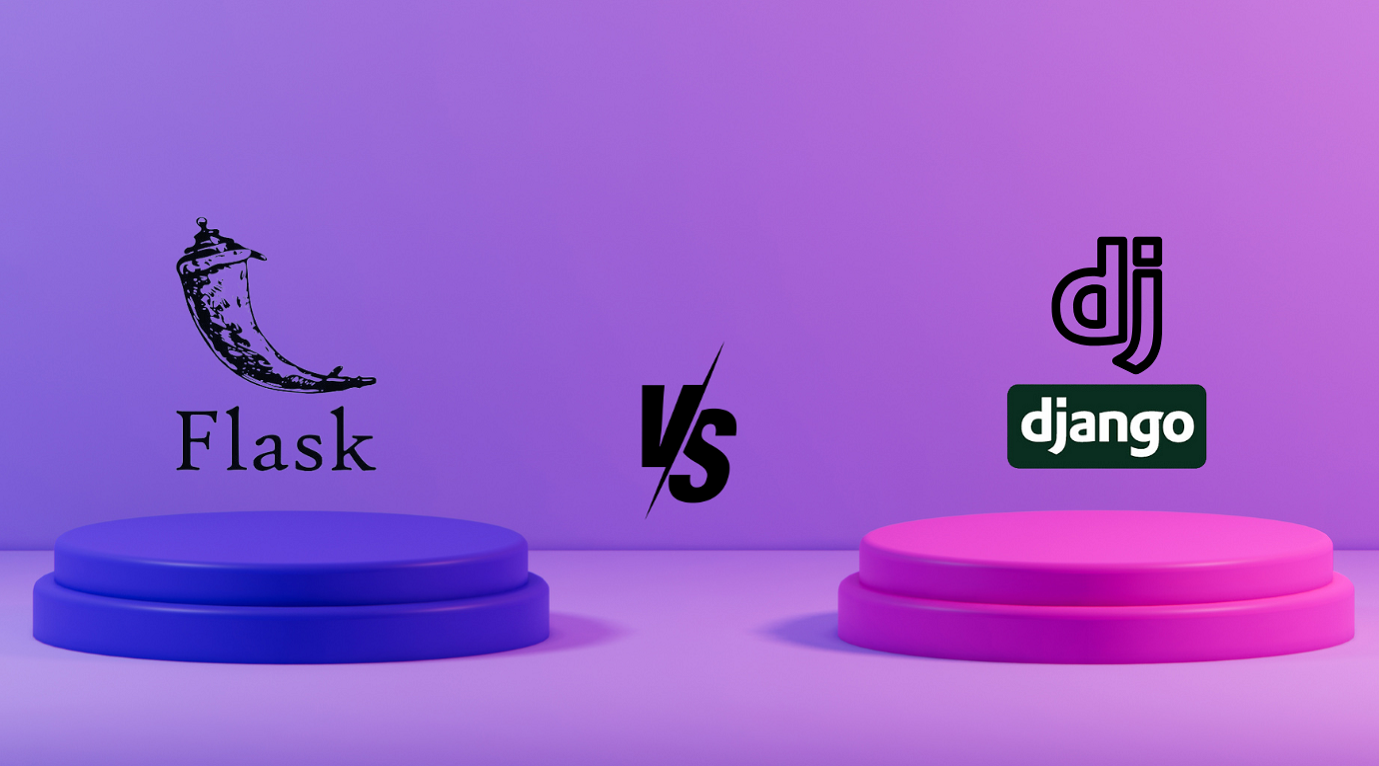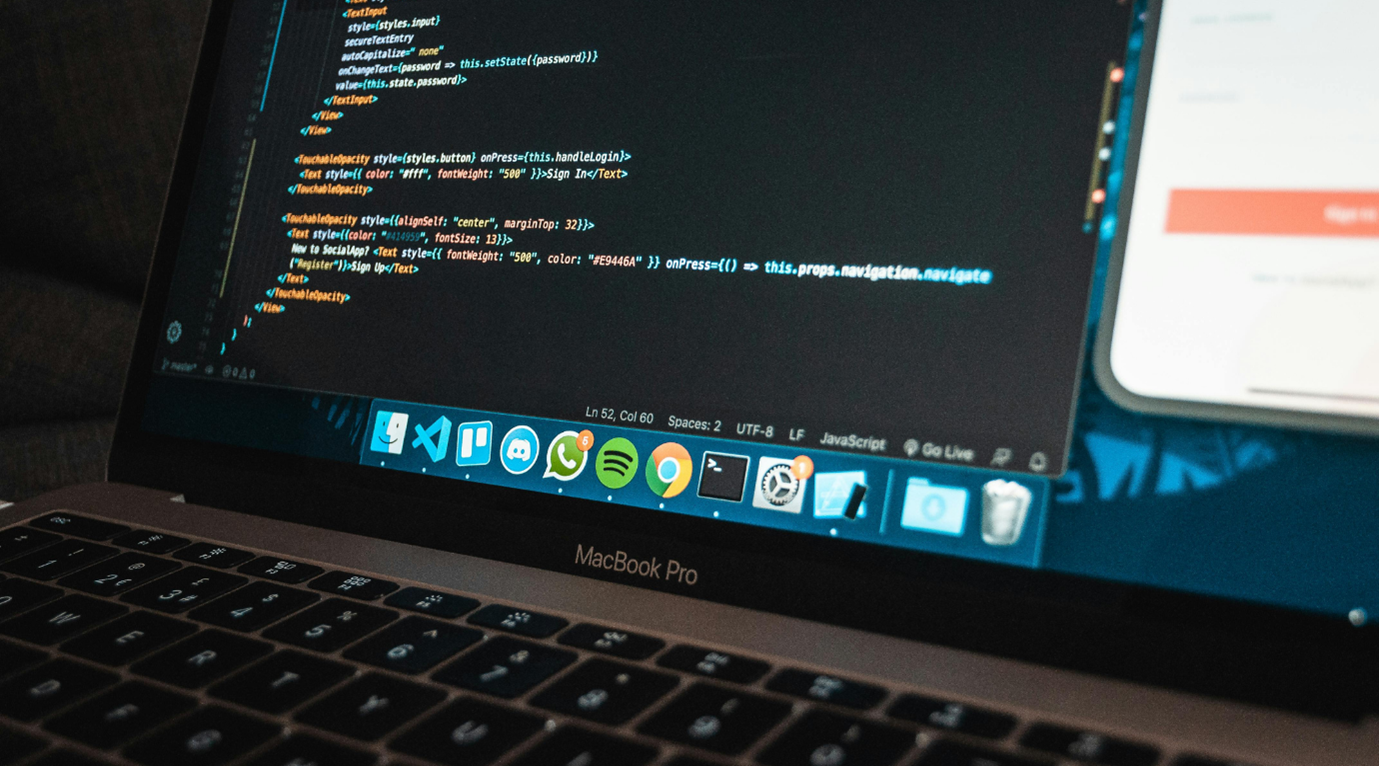Flask vs Django: The Essentials
To start, let’s take a closer look at what each framework brings to the table:
Flask: Known as the minimalist of web frameworks, Flask is designed with simplicity and flexibility at its core. Think of it as a “micro-framework” that provides just the essentials to get you started, leaving most of the choices around libraries and tools up to you. Flask gives you the freedom to customize your project and choose only the components you need, making it a favorite for lightweight applications and microservices.
Django: If Flask is the minimalist, Django is the “batteries-included” framework. It comes with a full suite of features and tools out of the box, from an ORM (Object-Relational Mapping) system to robust user authentication. Django is built to streamline development for larger, more complex applications by providing everything you need to build a powerful web app right from the start.
So, what does this mean for you? Well, choosing between the two largely depends on your project size, your need for customization, and your team’s familiarity with Python web development.
Philosophical Differences: Minimalism vs Full-Stack
Let’s talk philosophy, as that’s a big part of the Flask web framework vs Django debate.
Flask’s Philosophy: Flexibility and simplicity. Flask doesn’t impose too many rules, allowing you to handpick each component to suit your specific needs. If you prefer a framework that lets you have control over every aspect, Flask might be the perfect fit. It’s often the go-to for developers who like to create APIs, microservices, or small-to-medium-sized applications without all the frills.
Django’s Philosophy: Opinionated, yet complete. Django is structured to give you all the tools you need right away. Instead of piecing together various libraries and components, you get a solid, comprehensive setup that speeds up development. Django’s design philosophy makes it ideal for larger applications where you might need a full suite of tools, faster deployment times, and robust security features from day one.
When to Choose Flask:
- For small to medium-sized projects
- If you need a lightweight API or microservice
- When you need high customization and flexibility
- For developers who enjoy building things from scratch
When to Choose Django:
- For large-scale, complex applications
- Enterprise-level projects
- When you have tight deadlines and need built-in tools
- For applications requiring a high level of security and consistency
Performance and Scalability: How They Stack Up
Flask is known for its performance, especially in smaller applications. Because it’s lightweight, you avoid the overhead that can sometimes come with larger frameworks. Flask scales horizontally very well, so if your project grows over time, you can add more servers to handle the load efficiently.
Django, while heavier due to its “batteries-included” design, is no slouch when it comes to handling big applications. It offers built-in scalability features, like caching and load balancing, and has a solid track record of supporting large-scale applications (think Instagram). While it may not be as “light” as Flask, Django is designed to handle big projects with ease.
Key Technical Differences
Here’s a quick breakdown of some technical specifics:
Performance: Flask tends to be faster and more efficient for small projects. Django is a bit heavier but can handle complex applications well with optimization.
Scalability: Flask offers excellent horizontal scalability, making it a good choice for growing applications. Django also scales effectively and has additional built-in features to support large-scale applications.
Community and Ecosystem: Django boasts a larger, more mature ecosystem with extensive resources and third-party packages. Flask’s community is strong, too, but may not offer the same depth of resources.
Extensibility: Flask shines here, allowing you to integrate any libraries and extensions you like. Django is extensible as well, but its built-in features mean you may not need as many third-party add-ons.
Build Your Ideal Web Solution with Neuronimbus
Flask and Django? We’ll help you decide
Talk To Our Experts
Use Cases: When Each Framework Excels
Flask Use Cases:
- Microservices and APIs: Flask’s lightweight design makes it an ideal choice for building efficient, quick-to-deploy APIs.
- Prototyping and MVPs: If you’re testing an idea or need to get something up and running quickly, Flask’s simplicity is a huge plus.
- Custom Applications: For projects requiring a unique architecture, Flask provides the freedom to build everything to your exact specifications.
Django Use Cases:
- Enterprise-Level Applications: Django is well-suited for large-scale applications with complex requirements.
- Content Management Systems (CMS): The framework’s built-in admin panel makes it easy to manage content-heavy sites.
- E-commerce Platforms: Django offers the security and scalability needed for handling sensitive data and a large user base.
Real-World Examples of Flask and Django in Action
When looking at how big players are using these frameworks, it’s clear each has carved out its niche:
Flask:
- Pinterest: Uses Flask for its API services, taking advantage of its flexibility and performance.
- LinkedIn: Uses Flask for parts of its backend, especially for its mobile API services.
Django:
- Instagram: Django powers this social media giant, supporting millions of users with its solid infrastructure.
- Mozilla: Relies on Django for various applications, including its website and add-on platform.
These examples illustrate Flask’s strengths in API and microservice architecture, while Django is favored for feature-rich, large-scale applications.
Future Trends for Flask and Django
The web development world is constantly evolving, and both frameworks are adapting to the latest trends:
- Asynchronous Programming: Both Flask and Django are increasingly incorporating asynchronous programming to improve speed and performance.
- Cloud-Native Development: Flask and Django both work well with cloud-based infrastructure, leveraging Docker and Kubernetes for scalable, efficient deployments.
- AI and Machine Learning: These frameworks are increasingly integrated with AI and ML tools, enabling developers to build smarter, more interactive applications.
Conclusion: Choosing the Right Tool for Your Needs
In the debate of Flask vs Django, the right choice ultimately depends on your project’s specific needs. Flask’s minimalistic, customizable nature makes it perfect for smaller applications, APIs, or microservices, where flexibility and speed are essential. On the other hand, Django’s full-stack capabilities, robust security features, and scalability make it ideal for large-scale applications with more complex requirements.
At Neuronimbus, we specialize in both Flask and Django, helping businesses navigate the complexities of web development to find the best solutions for their unique needs. Whether you’re building a lightweight API or a feature-rich web platform, our team is ready to guide you in making the right choices and creating a powerful, scalable, and secure application. Ready to discuss your next project? Let’s bring your vision to life with the right framework tailored to your goals.




